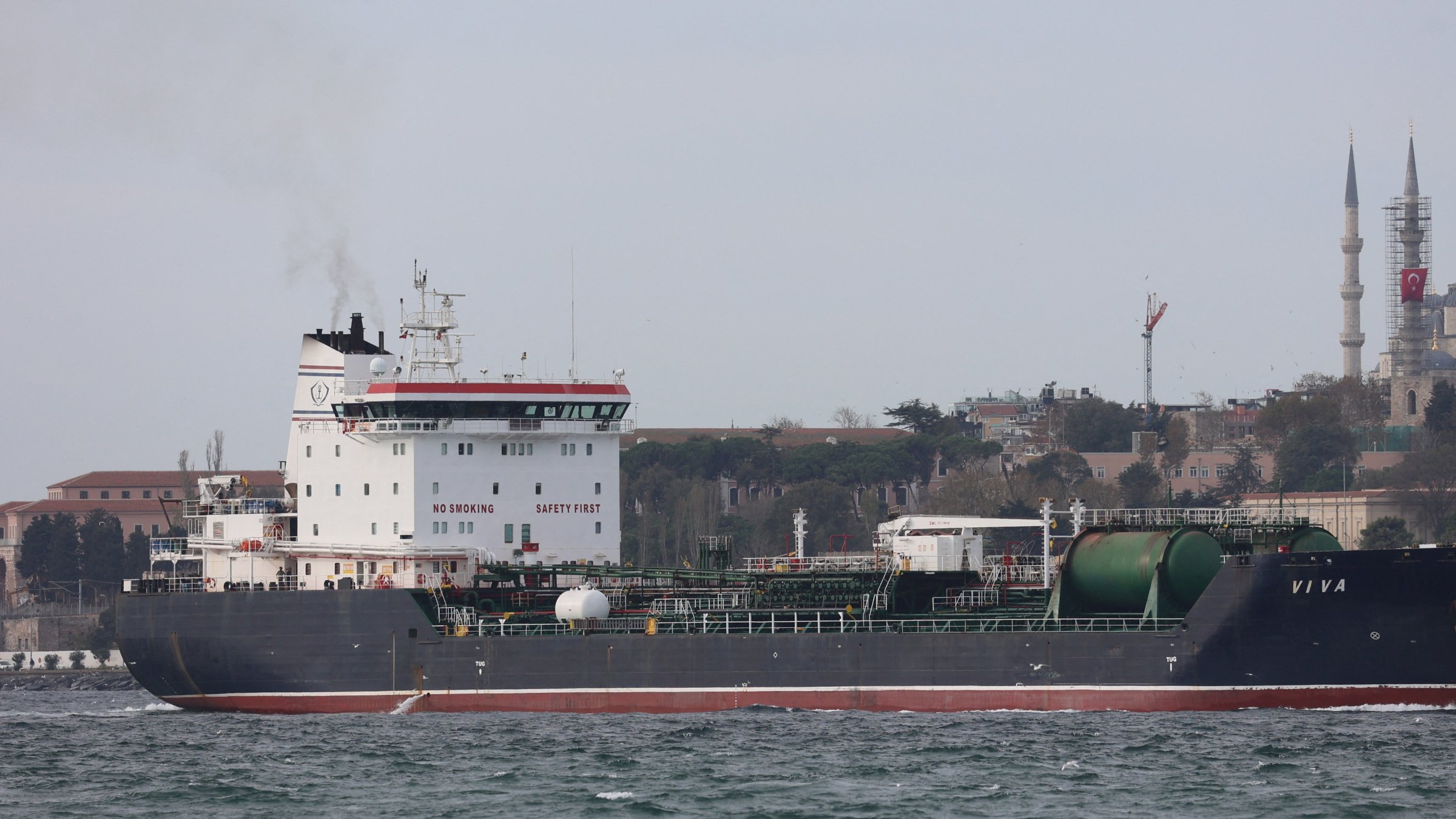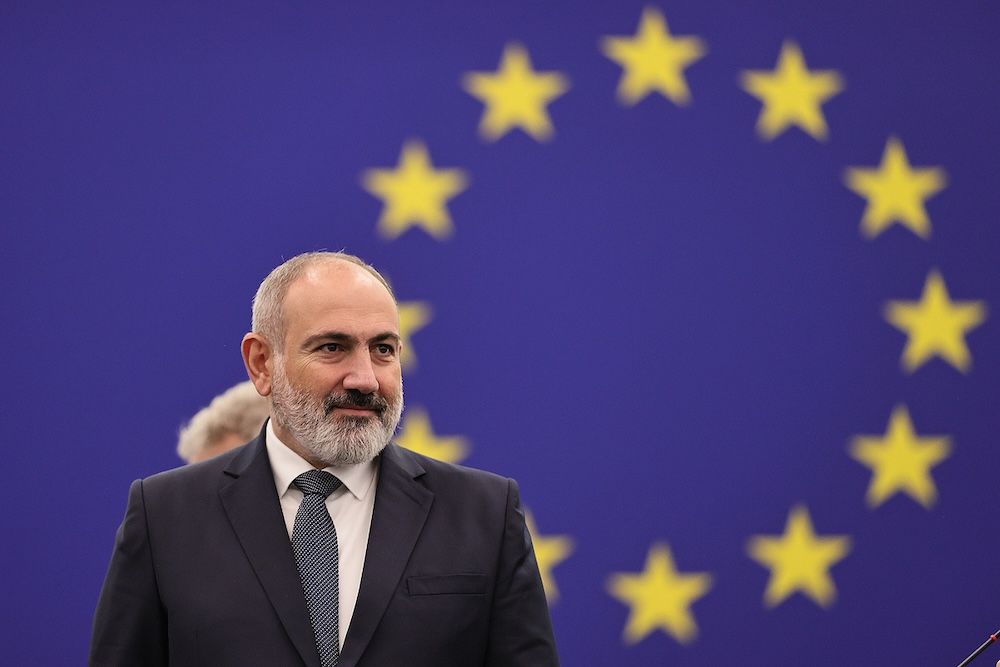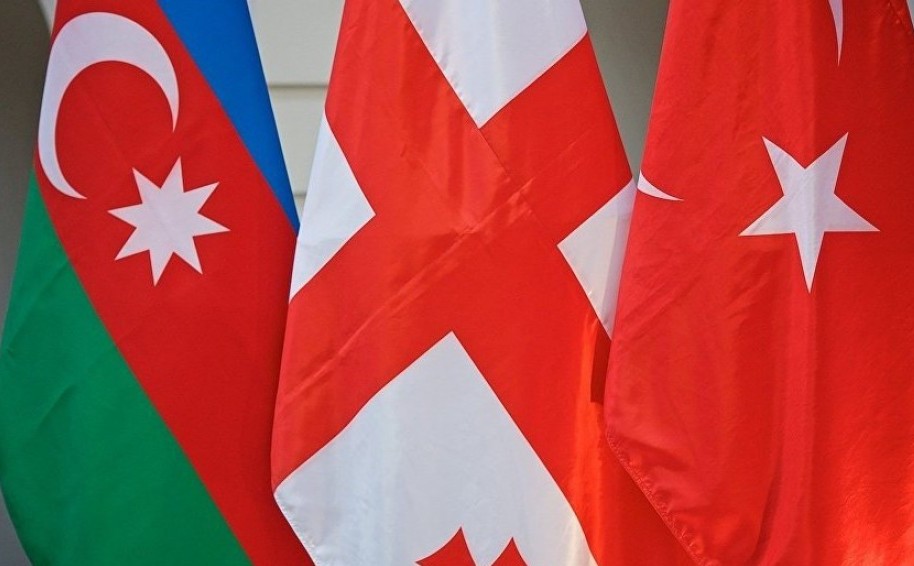
6 March 2015
The European People’s Party (EPP) is an international party formed by several center-right parties, especially the Christian Democrats, of the European Union member countries. Mainly it operates in the European Parliament. It is the largest political party in this parliament.
Center-right parties of associate member countries of the European Union are also able to become associate members of the EPP. Center-right parties of other European countries are able to join the EPP as observer members.
No political party from Turkey joined the EPP, although Turkey signed an Association Agreement with the EU.
The ruling Republican Party of Armenia and two opposition parties, namely, Heritage Party and Rule of Law Party in Armenia are observer members of the EPP. President Sargsyan, as the leader of the Republican Party of Armenia, is attentive to participate in the meetings of the EPP.
The European People’s Party, on March 3rd, 2015, adopted a resolution entitled “The Armenian Genocide, Turkish Responsibility, and European Values”.
This resolution condemns genocidal acts against the Armenian people by the Ottoman Empire and various regimes of Turkey in 1894-1923, dispossession of the homeland of the Armenians and the destruction of the Armenian heritage. It states that not only Armenian people but also the Pontic Greek and Assyrian peoples were subjected to such acts.
The resolution invites Turkey to face history and recognize the reality of the Armenian Genocide and the dispossession of the Armenians, to make redemption and make restitution to Armenians. It says these acts are appropriate for a European country. Ensuring a right of return to the Armenian people, protection of cultural heritage and conducting an integrated inventory of Armenian and other cultural heritage are among the demands of this resolution from Turkey.
Additionally, in brief, Turkey is invited to take the following measures: recognition and condemnation of the Armenian Genocide; comprehensive resolution of issues relating to the freedom of expression; reference to the genocide in state, society, and educational institutions; repair of religious and other cultural sites and their return to the Armenian and other relevant communities; normalization of Turkey-Armenia relations. Other than these, the Resolution invites the European Union, its Commission, Council and Parliament, and the international community as a whole to officially commemorate April 24 as a day of remembrance and condemnation of the Armenian Genocide.
As it can be seen, this resolution espouses the Armenian views altogether. As such, it has a one-sided and biased character. For that reason, this resolution can hardly facilitate the settlement of the Turkish-Armenian controversy. It can hardly contribute to the reconciliation between the Turks and the Armenians.
At the same time, this resolution, which was issued in a time when islamophobic currents gain strength, provokes the idea that genocide allegations are used as an instrument to impede Turkey’s accession to the European Union. This kind of a conduct will obviously impair Turkey’s European vision.
Another point that shall be underlined is that it is not a fair act to take decisions against Turkey in its absence, hence without ensuring Turkey an opportunity to explain and defend its position and views.
Finally, it shall be clarified that resolutions of this sort have no consequence other than affecting public opinion. Particularly, they do not have any legal significance. Therefore, this kind of resolutions do not merit much attention.
© 2009-2025 Center for Eurasian Studies (AVİM) All Rights Reserved
No comments yet.
-
THE RUSSIAN MILITARY BASE IN ARMENIA (2)
Ömer Engin LÜTEM 24.08.2010 -
THE NEW POPE AND THE ARMENIAN GENOCIDE ALLEGATIONS
Ömer Engin LÜTEM 10.06.2013 -
SARDARAPAT: THE VICTORY THAT NEVER HAPPENED
Ömer Engin LÜTEM 28.05.2015 -
ARMENIAN GENOCIDE FILMS FAIL TO WIN ACCLAIM
Ömer Engin LÜTEM 08.09.2014 -
ARMENIAN PROPERTIES
Ömer Engin LÜTEM 22.12.2010
-
 GUARDIANSHIP UNDER PRESSURE: DRONE ESCALATION, RUSSIAN MILITARIZATION, AND TÜRKIYE’S LEGAL ORDER IN THE BLACK SEA
GUARDIANSHIP UNDER PRESSURE: DRONE ESCALATION, RUSSIAN MILITARIZATION, AND TÜRKIYE’S LEGAL ORDER IN THE BLACK SEA
Teoman Ertuğrul TULUN 05.01.2026 -
PRESIDENT SARKISIAN VISITING NICOSIA AND ATHENS
Ömer Engin LÜTEM 20.01.2011 -
 AZERBAIJAN-ARMENIA PEACE TREATY PROCESS AND ATTEMPTS TO UNDERMINE TÜRKİYE-AZERBAIJAN RELATIONS
AZERBAIJAN-ARMENIA PEACE TREATY PROCESS AND ATTEMPTS TO UNDERMINE TÜRKİYE-AZERBAIJAN RELATIONS
Mehmet Oğuzhan TULUN 28.05.2025 -
EXTREME NATIONALIST ARMENIANS IN THE USA OPPOSING CHUCK HAGEL’S CANDIDACY AS SECRETARY OF DEFENSE
Alev KILIÇ 22.01.2013 -
 GEORGIA’S CONTRADICTORY POLICIES ENDANGER REGIONAL COOPERATION
GEORGIA’S CONTRADICTORY POLICIES ENDANGER REGIONAL COOPERATION
Aslan Yavuz ŞİR 07.02.2019
-
25.01.2016
THE ARMENIAN QUESTION - BASIC KNOWLEDGE AND DOCUMENTATION -
12.06.2024
THE TRUTH WILL OUT -
27.03.2023
RADİKAL ERMENİ UNSURLARCA GERÇEKLEŞTİRİLEN MEZALİMLER VE VANDALİZM -
17.03.2023
PATRIOTISM PERVERTED -
23.02.2023
MEN ARE LIKE THAT -
03.02.2023
BAKÜ-TİFLİS-CEYHAN BORU HATTININ YAŞANAN TARİHİ -
16.12.2022
INTERNATIONAL SCHOLARS ON THE EVENTS OF 1915 -
07.12.2022
FAKE PHOTOS AND THE ARMENIAN PROPAGANDA -
07.12.2022
ERMENİ PROPAGANDASI VE SAHTE RESİMLER -
01.01.2022
A Letter From Japan - Strategically Mum: The Silence of the Armenians -
01.01.2022
Japonya'dan Bir Mektup - Stratejik Suskunluk: Ermenilerin Sessizliği -
03.06.2020
Anastas Mikoyan: Confessions of an Armenian Bolshevik -
08.04.2020
Sovyet Sonrası Ukrayna’da Devlet, Toplum ve Siyaset - Değişen Dinamikler, Dönüşen Kimlikler -
12.06.2018
Ermeni Sorunuyla İlgili İngiliz Belgeleri (1912-1923) - British Documents on Armenian Question (1912-1923) -
02.12.2016
Turkish-Russian Academics: A Historical Study on the Caucasus -
01.07.2016
Gürcistan'daki Müslüman Topluluklar: Azınlık Hakları, Kimlik, Siyaset -
10.03.2016
Armenian Diaspora: Diaspora, State and the Imagination of the Republic of Armenia -
24.01.2016
ERMENİ SORUNU - TEMEL BİLGİ VE BELGELER (2. BASKI)
-
AVİM Conference Hall 24.01.2023
CONFERENCE TITLED “HUNGARY’S PERSPECTIVES ON THE TURKIC WORLD"









